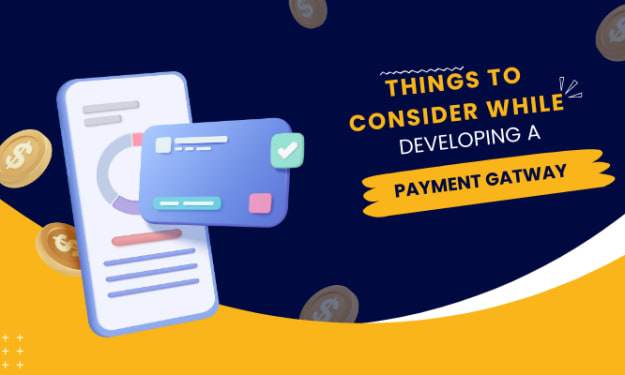Importance of Security in FinTech Apps
Security in FinTech Apps

In today's digital age, fintech applications have become an integral part of how we manage our finances. These apps offer convenience and efficiency, allowing users to perform a wide range of financial activities from their smartphones. However, with this convenience comes the critical issue of security. As cyber threats become increasingly sophisticated, the need for robust security measures in fintech apps has never been more urgent. A FinTech app development company must prioritize security to protect user data and maintain trust. This blog delves into the importance of security in fintech apps, explores best practices for ensuring robust protection, and underscores the role of eWallet security in safeguarding financial transactions.
Why FinTech App Security is Important?
The importance of fintech app security cannot be overstated. Financial applications deal with sensitive data, including personal information, bank details, and transaction histories. This makes them prime targets for cybercriminals. Here are several reasons why security is paramount in fintech apps:
1. Protection of Sensitive Data
Fintech apps handle a vast amount of sensitive information. Any breach can lead to significant financial losses and identity theft. Ensuring that this data is securely stored and transmitted is crucial to prevent unauthorized access and potential misuse.
2. Building User Trust
Trust is the cornerstone of any financial service. Users need to feel confident that their personal and financial information is safe. A single security breach can erode this trust, leading to user attrition and damaging the reputation of the fintech app.
3. Regulatory Compliance
Financial services are heavily regulated to protect consumers. Compliance with regulations such as GDPR, PSD2, and other regional laws is mandatory. These regulations often require stringent security measures to protect user data. Non-compliance can result in hefty fines and legal consequences.
4. Preventing Financial Fraud
Cybercriminals are constantly devising new methods to exploit vulnerabilities in fintech apps. Robust security measures are essential to prevent fraud, including unauthorized transactions, phishing attacks, and other malicious activities.
5. Maintaining Market Competitiveness
In a competitive market, security can be a differentiator. Users are more likely to choose apps that they perceive as secure. A FinTech app development company that prioritizes security can gain a competitive edge by reassuring users about the safety of their financial data.
FinTech App Security Best Practices
Implementing effective security measures is crucial for protecting fintech apps from potential threats. Here are some best practices that fintech app development companies should follow:
1. Data Encryption
Encrypting data both at rest and in transit ensures that even if data is intercepted or accessed without authorization, it remains unreadable. Advanced encryption standards (AES) and secure socket layer (SSL) protocols are commonly used to protect sensitive information.
2. Multi-Factor Authentication (MFA)
MFA adds an extra layer of security by requiring users to provide two or more verification factors to access their accounts. This can include something they know (password), something they have (mobile device), and something they are (biometric verification).
3. Biometric Authentication
Biometric methods such as fingerprint scanning, facial recognition, and voice recognition offer secure and convenient authentication. These methods are difficult to replicate and provide a robust security measure against unauthorized access.
4. Regular Security Audits and Penetration Testing
Conducting regular security audits and penetration testing helps identify vulnerabilities in the app. These assessments simulate cyberattacks to uncover weaknesses that need to be addressed, ensuring that the app's defenses are robust.
5. Secure Coding Practices
Adopting secure coding practices helps prevent common vulnerabilities such as SQL injection, cross-site scripting (XSS), and buffer overflows. Developers should follow guidelines such as the OWASP Top Ten to minimize security risks.
6. Tokenization
Tokenization replaces sensitive data with unique identification symbols (tokens) that retain essential information without compromising security. This practice is particularly useful in eWallet security as it protects card information during transactions.
7. User Education
Educating users about security best practices, such as recognizing phishing attempts, using strong passwords, and not sharing sensitive information, is vital. Informed users are less likely to fall victim to cyber threats.
8. Monitoring and Incident Response
Implementing real-time monitoring systems to detect suspicious activities and having a robust incident response plan in place are crucial. Quick detection and response can mitigate the damage caused by security breaches.
Conclusion
In the rapidly evolving landscape of financial technology, the importance of security in fintech apps cannot be overemphasized. As these applications handle increasingly sensitive data and become more integral to users' financial lives, ensuring their security is paramount. A FinTech app development company must implement robust security measures to protect user data, build trust, and comply with regulatory requirements.
FAQs
Q1. Why is security so crucial for fintech apps?
Security is paramount for fintech apps because they handle sensitive financial and personal data. A breach can result in significant financial losses, identity theft, and a loss of user trust. Ensuring robust security measures protects user data, builds trust, complies with regulations, and prevents financial fraud. A FinTech app development company must prioritize security to maintain the integrity and reliability of their applications.
Q2. What are the main security threats to fintech apps?
The main security threats to fintech apps include data breaches, phishing attacks, malware, unauthorized access, and insider threats. Cybercriminals constantly devise new methods to exploit vulnerabilities, making it essential for fintech apps to implement comprehensive security measures.
Q3. How does encryption enhance fintech app security?
Encryption enhances fintech app security by converting sensitive data into unreadable code that can only be deciphered with a decryption key. This ensures that even if data is intercepted or accessed by unauthorized individuals, it remains protected. Both data at rest and data in transit should be encrypted using advanced standards like AES and SSL protocols.
Q4. What is multi-factor authentication (MFA) and why is it important?
A Multi-factor authentication (MFA) is a security measure that requires users to provide two or more verification factors to access their accounts. These can include something the user knows (password), something they have (mobile device), and something they are (biometric verification).
About the Creator
Roshan Choudhary
Roshan's expertise lies in developing comprehensive Content plans tailored to each user's unique needs, generating impactful results and exceptional ROI.
Check it out here - https://www.nimbleappgenie.com/
Enjoyed the story? Support the Creator.
Subscribe for free to receive all their stories in your feed. You could also pledge your support or give them a one-off tip, letting them know you appreciate their work.






Comments (1)
Hey, just wanna let you know that this is more suitable to be posted in the 01 community 😊